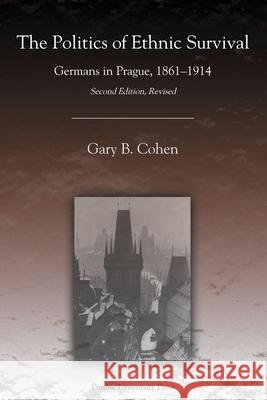The Politics of Ethnic Survival: Germans in Prague, 1861-1914 » książka
The Politics of Ethnic Survival: Germans in Prague, 1861-1914
ISBN-13: 9781557534040 / Angielski / Miękka / 2006 / 332 str.
The German-speaking inhabitants of the Bohemian capital developed a group identification and defined themselves as a minority as they dealt with growing Czech political and economic strength in the city and with their own sharp numerical decline: in the 1910 census only seven percent of the metropolitan population claimed that they spoke primarily German. The study uses census returns, extensive police and bureaucratic records, newspaper accounts, and memoirs on local social and political life to show how the German minority and the Czech majority developed demographically and economically in relation to each other and created separate social and political lives for their group members. The study carefully traces the roles of occupation, class, religion, and political ideology in the formation of German group loyalties and social solidarities.











